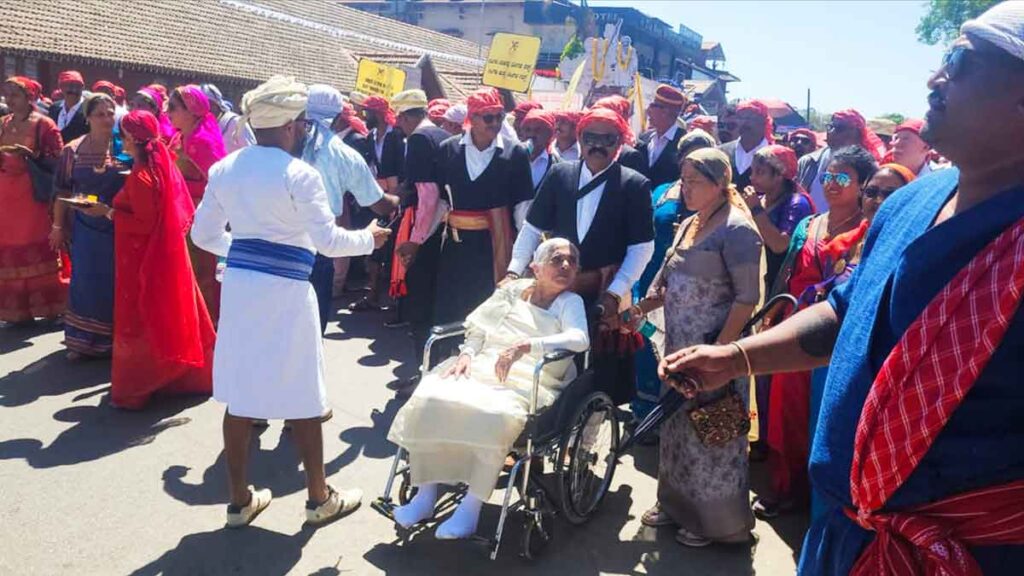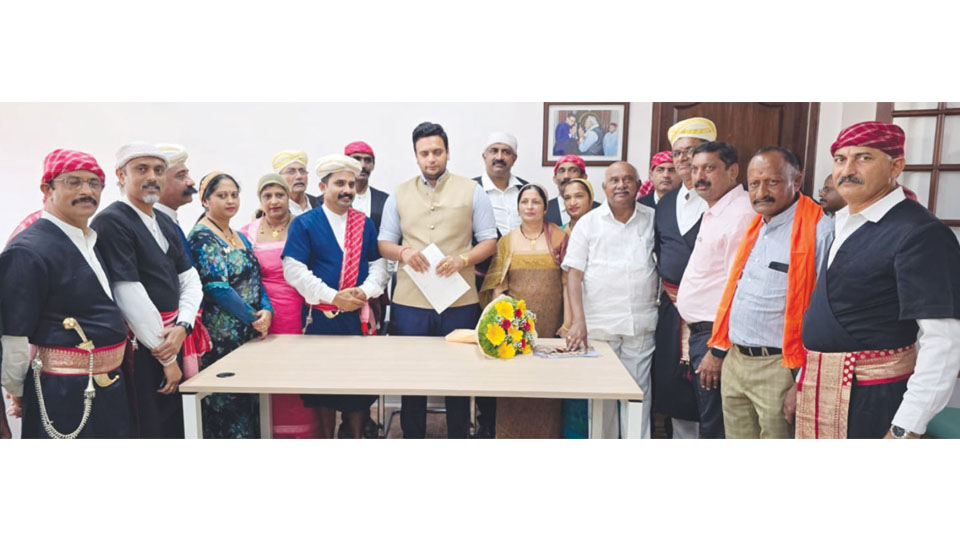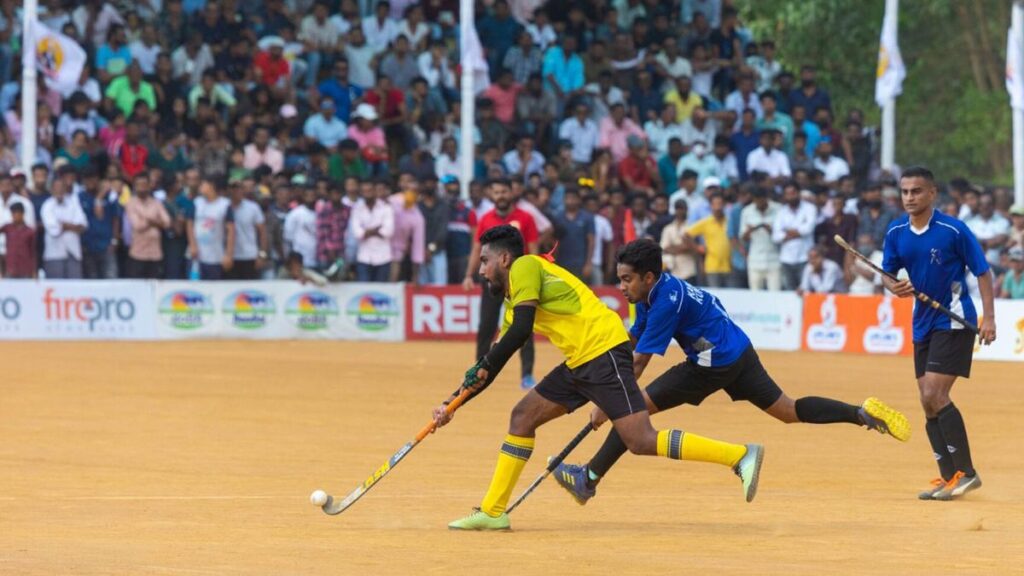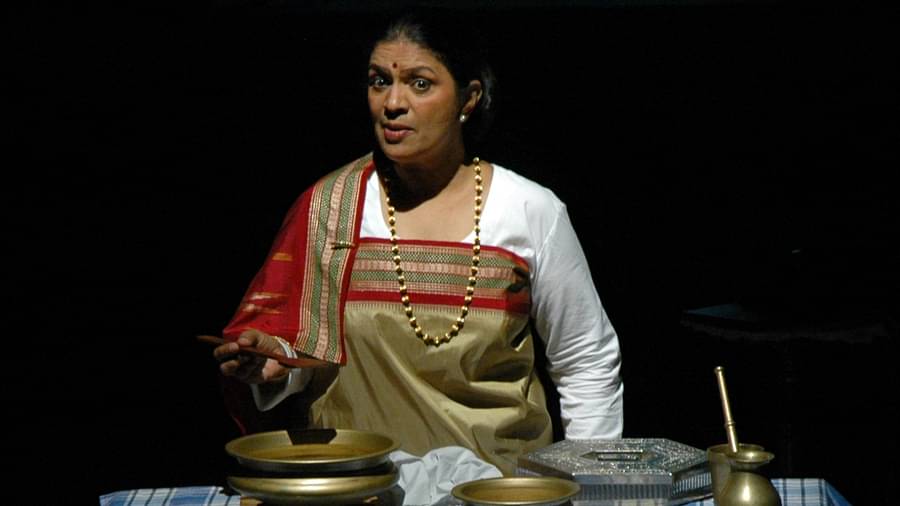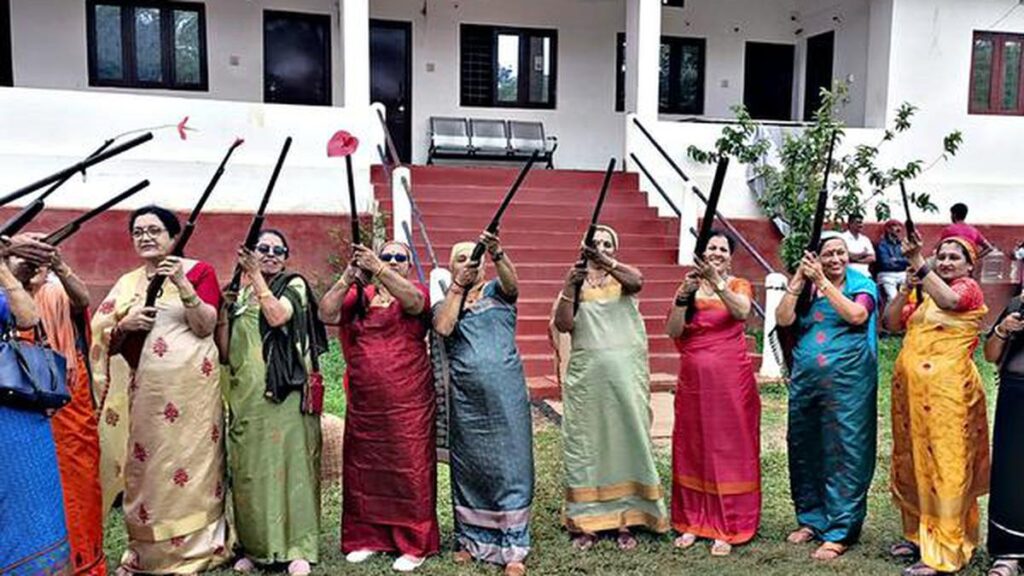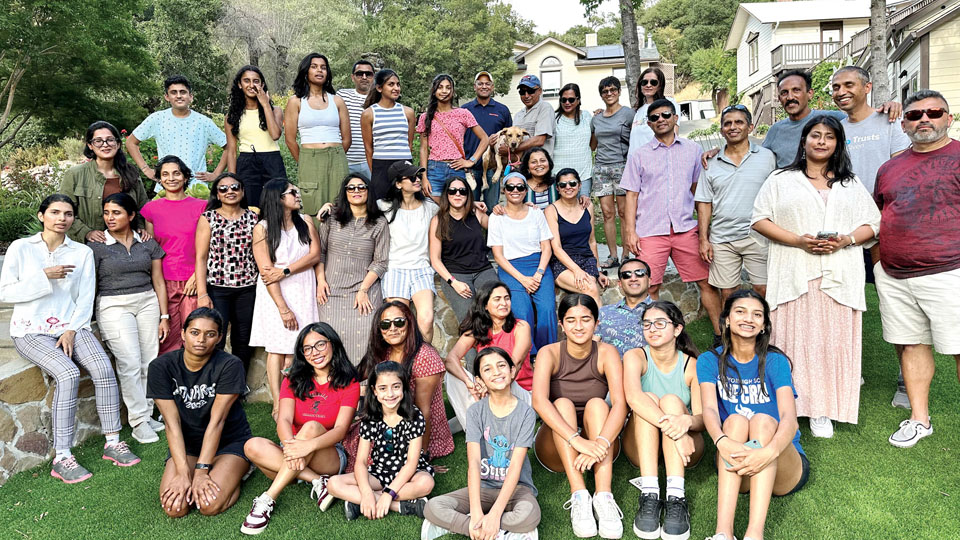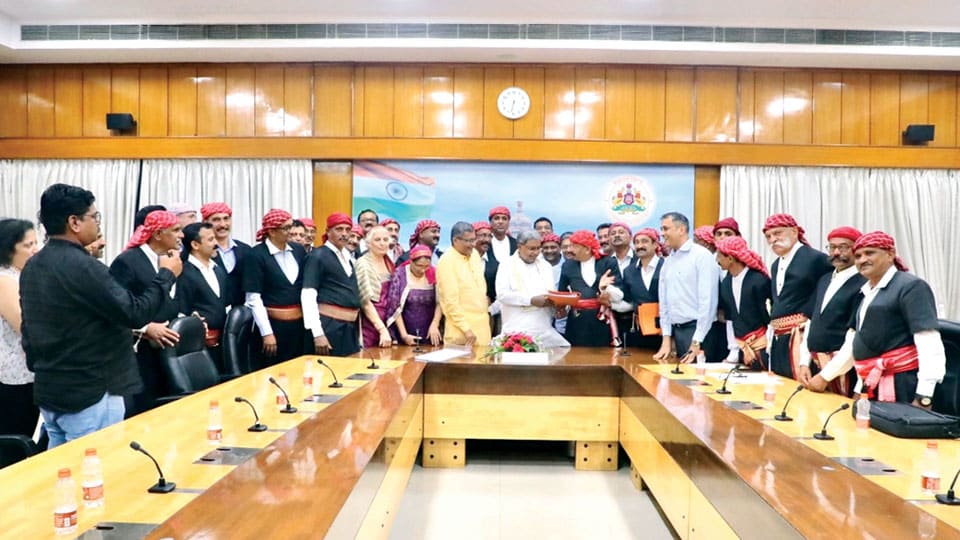HIGHLIGHTS
The Codava National Council (CNC) organised a human chain demonstration in Birunani on Monday, urging the Union Government to address their long-standing demands.

Madikeri :
The Codava National Council (CNC) organised a human chain demonstration in Birunani on Monday, urging the Union Government to address their long-standing demands. The primary demand is the creation of exclusive Codava constituencies for the Assembly and Parliament to ensure adequate representation of the community within their traditional homeland.
The CNC expressed concerns that the ongoing delimitation process may overlook the interests of the Codava community. Leaders fear that political influences could result in the merging of Codavaland with neighbouring areas, undermining the representation of the indigenous Codavas.
The CNC has put forward two proposals: carving out dedicated Assembly and Parliamentary constituencies in Codavaland and creating exclusive representative bodies for the Codava community, similar to the Sangha Constituency for the Buddhist monastic community in Sikkim.
The CNC also reiterated its demand for Scheduled Tribe (ST) status under the Indian Constitution, highlighting the community’s distinct identity, culture, and history. The demand is anchored in Articles 244 and 371, along with provisions in the Sixth and Eighth Schedules, which recognise and protect tribal communities and languages.
The CNC argues that this misrepresentation has led to a gradual erosion of the community’s identity, describing it as a violation of international conventions on indigenous rights.
A writ petition filed by former Member of Parliament Dr. Subramanian Swamy in the Karnataka High Court seeks adjudication of the Codavas’ demands. The CNC is also advocating for recognition of Codavas under international frameworks such as the United Nations Declaration on the Rights of Indigenous Peoples.
The CNC has called for the restitution of ancestral lands that were taken over by various rulers, including the Keladi dynasty, British authorities, and subsequent governments.
The CNC remains firm in its demand for recognition as a distinct indigenous community and continues to engage with constitutional and legal avenues to secure their rights. The human chain event at Birunani marked the latest step in the community’s long-standing struggle for recognition and justice.
Is Sullia being pitched to be an assembly segment of Mysuru-Kodagu LS constituency?
In another development, DV Sadananda Gowda (former MP) and Shobha Karandlaje, representing Bengaluru North LS constituency, have been alleged to have brought pressure on the central government to annexe Sullia Assembly constituency, which is currently one of the eight assembly segments in Dakshina Kannada Lok Sabha constituency, to be a part of the Mysuru-Kodagu Lok Sabha constituency. The Codavas point out that this move will further strengthen the Vokkaliga dominance in the Kodagu district and will worsen the Codava community’s representation in the Karnataka assembly. “This is in a preliminary stage, and in the coming days we will further investigate the effects of the inclusion of the Sullia Assembly constituency into the Mysuru-Kodagu Lok Sabha constituency.”
source: http://www/thehansindia.com / The Hans India / Home> News> State> Karnataka / by The Hans India, Hans News Service / March 31t, 2025
